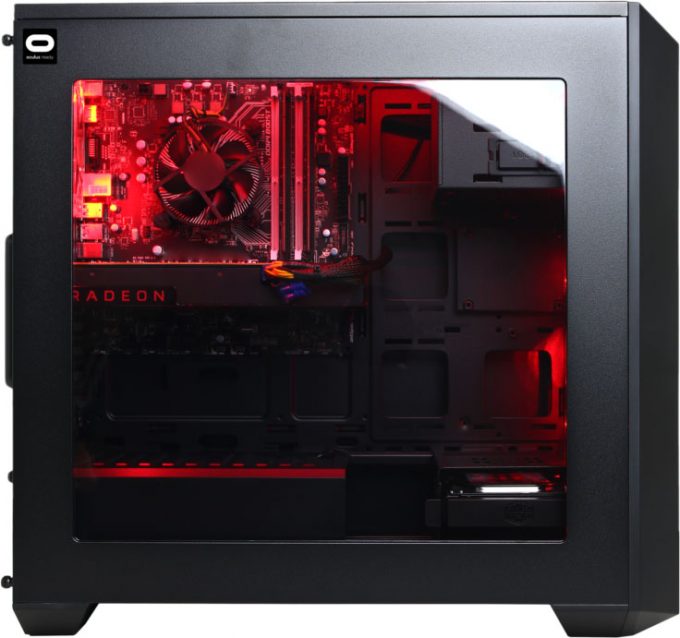

The development of CPUs has come a long way since the dawn of VR gaming, allowing for the previous 3-4 generations of CPUs to run the newest VR titles. While a GPU does the heavy lifting for producing images, a CPU can process many physical objects simulated in VR at varying interaction speeds. The 2nd most important component in a VR-based computer system is a good CPU that helps alleviate bottlenecks between itself and the GPU. A card in the RTX 20/30 series, such as the RTX 2080 or 3080, will have no problems hitting the higher refresh rates in most VR games. The Valve Index and Oculus Quest are for more modern hardware than the 1660 Super and 590. You can check out benchmarks of the Nvidia GTX 1660 Super card and its performance against its counterpart, the AMD 590, both released as a price to performance card for the lower-spec VR capable builds. Let's look at the most popular headsets in the market and the amount of FPS you need to push these headsets to their limit. Depending on the headset you want, the graphics card will offer a performance relevant to that headset’s maximum refresh rate. This applies to VR headsets all the same. When looking at monitors, you may have seen advertisements referring to “60hz/144hz/165hz refresh rates.” Hz is an abbreviation for Hertz, which transitions into FPS (frames per second). When considering which GPU, we first have to see the specs of our selected headset.Įach headset has a specific output that it can manage. Generating that much pixel density requires a dedicated GPU to produce this effect. To project video into the headset's lenses, imagine squeezing an entire 1920x1080p (or in some headsets, even more) resolution monitor into a 7 ½ by 4-inch space that you put on your head.
#BEST VR READY PCS PC#
This is the best option for those wanting to spend $3,000+ on a high-tier VR gaming rig able to run the most demanding headsets to date and in the future.īreaking of Components in a VR ready PC GPUĪ GPU (graphics processing unit) is the most critical component in a VR oriented PC. With options for custom liquid cooling and access to NVIDIA and their 30 variants. The Apex Xtreme is the flagship that breaks into the high tier of computer configurations for VR ready PCs.

This type of PC caters to the mid-tier of VR-ready builds containing the Ryzen 5 5600x and NVIDIAs RTX 3070 running the latest VR headsets such as the Valve Index, able to push higher framerates on medium to high settings
#BEST VR READY PCS SERIES#
The 1660 super is a great card that still performs great with headsets like the Oculus Rift/Quest and the HTC ViveĪn appealing feature about our Apex Zen series is its usability in many applications from the run of the mill video games to a VR ready experiences with only a few upgrades. With this machine, you can expect to hit 80FPS on medium to low settings with slight dips depending on whether you get the Oculus Rift or HTC Vive. Our Apex Gold is an entry-level PC for the world of VR with older headsets such as the Oculus Rift and Vive.
#BEST VR READY PCS UPGRADE#
We have many VR-ready builds with the customization and upgrade in mind consisting of a budget, mid-tier, and high-end VR-ready PCs. NVIDIA GeForce GTX 970, AMD Radeon R9 290 equivalent or betterĬompatible HDMI 1.4 video output, DisplayPort 1.2Īt Apex, we want to give you the best performance between you and your equipment. Intel Core i5-4590/AMD FX 8350 equivalent or better NVIDIA GTX 960 4GB / AMD Radeon R9 290 or greater NVIDIA GTX 970 / AMD Radeon R9 290 or greater NVIDIA GTX 1050 Ti / AMD Radeon RX 470 or greater

NVIDIA GTX 1060 / AMD Radeon RX 480 or greater Intel i5-4590 / AMD Ryzen 5 1500X or greater Below is a chart provided by Oculus and HTC on the specifications for the requirements. Minimum Requirements for VRīefore starting your search, consider the entry-level requirements of headsets like the Oculus Rift and Vive. We will show you what to consider when shopping for a PC capable of running titles such as Half-Life Alyx, Superhot VR, BeatSaber, and others. Due to the advancements of modern-day GPUs, gamers and businesses alike can finally achieve a seamless VR-ready experience on prebuilt PCs valued at around $1,500. Over recent years, the refinement of virtual reality has caused a massive surge of entry-level enthusiasts willing to buy VR headsets.


 0 kommentar(er)
0 kommentar(er)
